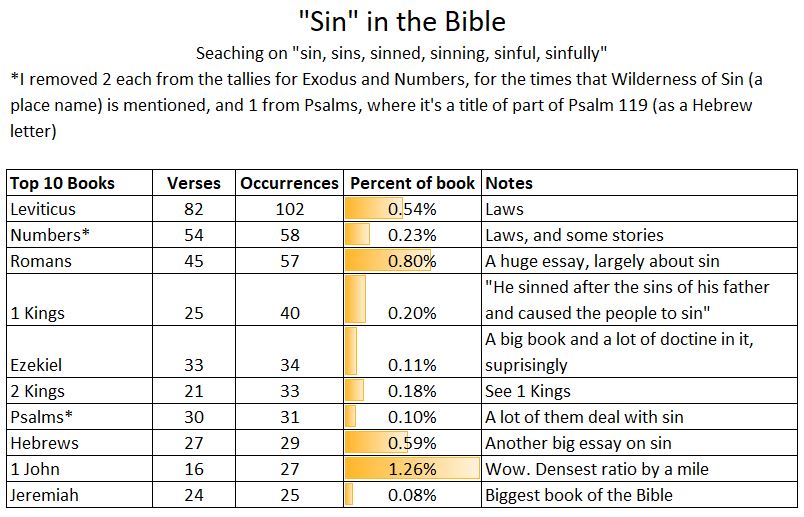So, in all of these studies, I try to take a really simple, analytical approach to the lesson, and we often discover some unknown things along the way. But this one is different, and I am breaking tradition with my normal format today.
For one, the idea of sin in the Bible is actually very simple (for once!). It’s exactly what everyone thinks it is. There are no cool stories. No complicated shades of meaning here. Sin is doing wrong. You can sin against a person, but the vast, overwhelming usage of the word in the Bible is to sin against God.
The other thing that makes this lesson difficult is that sin is so personal. It is, by definition, our failure to make God happy, the one who gives to us generously and made us and everything we see. How do you talk in a detached way about that? I think it’s good if that seems impossible.
There are some things to talk about—on July 4 we will look at blood atonement (sacrifices); on July 15 we will consider the death of Jesus. Last week we discussed the meanings of holy and unclean.
But sin? It’s bad. Don’t do it.
Sin in the Bible
Often when we do a word study, there is a single book of the Bible that uses the word much more than any of the others. This is no exception, and the book is Leviticus. Leviticus is all about priestly duties, which largely involve dealing with atonement for sins. The book of Numbers is the runner up, largely for the same reason, but also because of the many disappointing stories in the book. Most of the rest of the top ten are the other largest books of the Old Testament.
Romans was my original guess for the top book about sin, but it does come in third. It is a huge, master-crafted essay from the apostle Paul, and it is all about sin (and many other things). Hebrews (author unknown) is next for the New Testament and it has many similarities to Romans in size and scope.
And the biggest surprise to me was 1 John. It is so gentle in tone, but John relentlessly warns the reader of the ever-present danger of sin. It is the most concentrated occurrence of the word “sin”; the book is only five chapters long.
Theology and doctrine
It’s why Jesus died (Heb 10:12), not to mention thousands – probably millions – of animals over the years.
The cost of sin is both unfathomably high (Heb 10:1, 4) and yet paid by a single man (Heb 10:14).
It is a debt we could never pay back in any lifetime, except for the command to forgive one another (Matt 18:21-35).
And all we can do is be thankful for God’s mercy every day. And try yet again not to sin today.


No responses yet